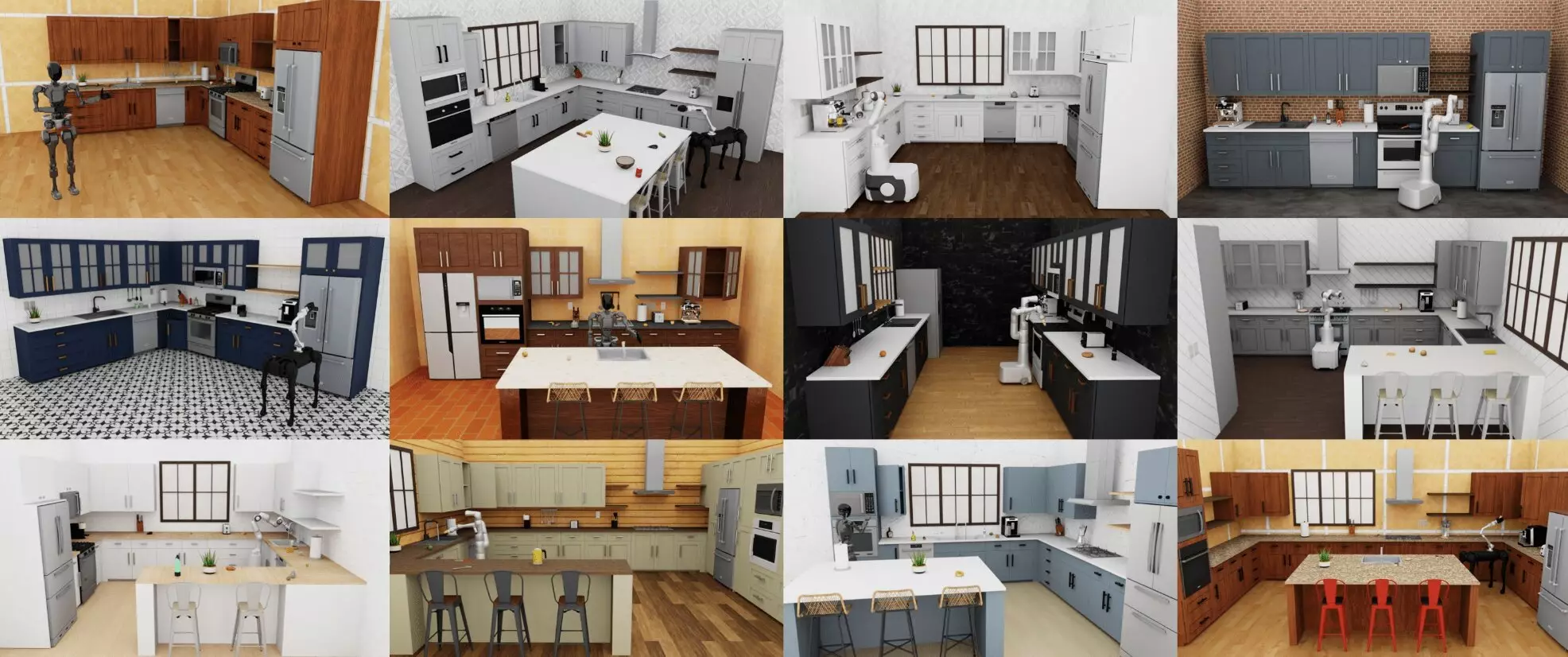The field of robotics has seen significant advancements in recent years, largely due to the improvement in artificial intelligence (AI) tools. These tools, such as natural language processing (NLP) models and computer vision algorithms, have made great strides in performance, thanks to the exponential growth of training datasets. However, when it comes to training data for robot control and planning algorithms, the situation is quite different. Acquiring this data is not as straightforward, resulting in a scarcity of resources for training computational models in robotics applications.
Introducing RoboCasa: A New Simulation Framework
Researchers at the University of Texas at Austin and NVIDIA Research have developed a groundbreaking platform called RoboCasa. This large-scale simulation framework aims to train generalist robots to perform various tasks in everyday settings. Inspired by the success of training large AI models on massive datasets, the team behind RoboCasa seeks to create foundation models for robots capable of everyday tasks. By providing high-quality simulation data, RoboCasa opens up new possibilities for training robotics algorithms.
The team, led by Yuke Zhu, introduced RoboCasa as an extension of RoboSuite, a simulation framework they had previously developed. By leveraging generative AI tools, they were able to create diverse object assets, scenes, and tasks within the simulated environment. With over 100k trajectories available for model training, RoboCasa supports various robot hardware platforms, making it a versatile platform for training robotics algorithms. The platform features thousands of 3D scenes, each containing a wide range of everyday objects, furniture items, and electrical appliances.
Key Findings and Exciting Discoveries
Through their research, Zhu and his colleagues made two significant discoveries. First, they observed a scalability trend in their training datasets, where increasing the dataset size led to a steady growth in model performance. Second, by combining simulation data with real-world data, they found that the augmented dataset resulted in improved performance of robots in real-world tasks. These findings highlight the effectiveness of simulation data in training AI models for robotics applications.
Initial experiments with RoboCasa have shown its value in generating synthetic training data for imitation learning algorithms. The platform’s open-source nature allows other teams to access it on GitHub and experiment with its capabilities. Moving forward, Zhu and his team plan to enhance RoboCasa by incorporating advanced generative AI methods to further expand the simulations. Their goal is to capture the variety and richness of human-centered environments, from homes to offices, to facilitate widespread use within the robotics community.
The development of large-scale simulation frameworks like RoboCasa opens up new possibilities for training AI models in robotics. By leveraging the power of generative AI tools and realistic simulations, researchers can create diverse and effective training datasets for robotics algorithms. With continued advancements in this field, the future of robotics looks promising, with more capable and adaptable robots being developed for a wide range of applications.


Leave a Reply